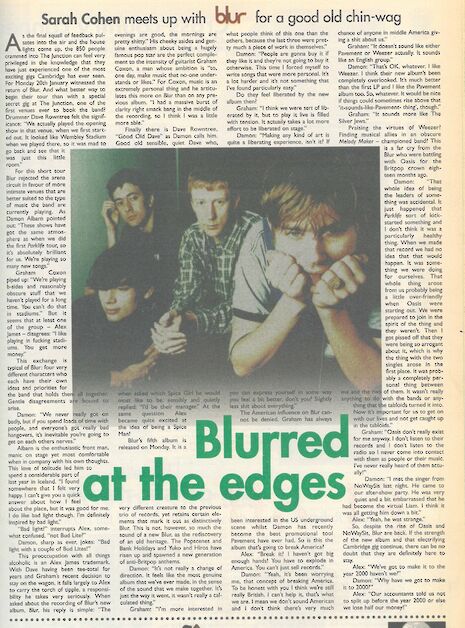The comeback kings
Patrick Wernham takes a look at the bands staging successful comebacks

One has a certain sympathy with reunited bands. The giddy sense of euphoria that greets a greatest hits set might seem like it’ll last forever, but it won’t. Fans start demanding new material; yet when a new album is released, there’s no guarantee that it’ll be well received. Just ask The Pixies.
That makes it all the more remarkable that 2015 has seen a spate of genuinely exciting comeback albums. Efforts from Blur, Sleater-Kinney, Dr. Dre, and New Order can all stand up to anything in their imposing back-catalogues. What then lies behind their success, in an area where so many have failed?
It is difficult to see much common ground. Blur have discussed how the spontaneous nature of the recording sessions, completed during a touring break in Hong Kong, relieved any pressure to write a definitive ‘comeback single.’ Yet New Order had been working on Music Complete for years, having debuted songs from the album live in concert as early as 2013. Gestation period seems pretty immaterial.
Likewise, motivations can’t provide a common link. Dr. Dre might have felt the need to assert himself as an artist after years focusing on business, particularly after the lukewarm reception to singles like ‘Kush’. Sleater-Kinney on the other hand had nothing to prove: widely admired, the members had all moved onto new exciting projects, Carrie Brownstein’s Portlandia being the prime example.
Perhaps the real answer is that all the albums don’t take themselves too seriously. New Order sound like they’re enjoying themselves for once on ‘Tutti Frutti’, while the pomp and strut on the likes of ‘Genocide’ and ‘One Shot One Kill’ make Dr Dre’s Compton a joy to listen to. Both Sleater-Kinney and Blur manage the difficult task of engaging with their back-catalogue without resorting to boring retreads. If only more bands could show the same fearlessness with regards to their legacy, and remember why we listened to them in the first place: fun.
 News / Fitz students face ‘massive invasion of privacy’ over messy rooms23 April 2024
News / Fitz students face ‘massive invasion of privacy’ over messy rooms23 April 2024 News / Cambridge University disables comments following Passover post backlash 24 April 2024
News / Cambridge University disables comments following Passover post backlash 24 April 2024 Comment / Gown vs town? Local investment plans must remember Cambridge is not just a university24 April 2024
Comment / Gown vs town? Local investment plans must remember Cambridge is not just a university24 April 2024 Interviews / Gender Agenda on building feminist solidarity in Cambridge24 April 2024
Interviews / Gender Agenda on building feminist solidarity in Cambridge24 April 2024 Comment / Does Lucy Cavendish need a billionaire bailout?22 April 2024
Comment / Does Lucy Cavendish need a billionaire bailout?22 April 2024





